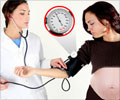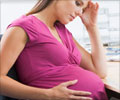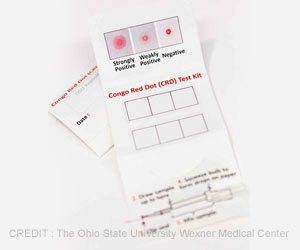Highlights:
- Pregnant moms with very high blood pressure (preeclampsia) are four times more likely to suffer a heart attack or cardiovascular death
- Early screening of preeclampsia and //medication such as low-dose aspirin could be effective in lowering blood pressure as early as the second trimester
Women with high blood pressure in their first pregnancy are at a higher risk of having a heart attack or dying from heart disease, according to a Rutgers study. The findings of the study are published in the
Journal of Women’s Health. //
Approximately 2 to 8 percent of pregnant women worldwide are diagnosed with preeclampsia, a complication characterized by high blood pressure that usually begins after 20 weeks of pregnancy in women whose blood pressure had been normal.
‘Pregnant women with very high blood pressure (preeclampsia) are four times more likely to suffer a heart attack or die from heart disease.’
Read More..
Doctors haven’t identified a single cause, but it is thought to be related to insufficiently formed placental blood vessels. Preeclampsia is also the cause of 15 percent of premature births in the U.S.
Details of the Study
A team of researchers analyzed cardiovascular disease in 6,360 women, age 18 to 54, who were pregnant for the first time and diagnosed with preeclampsia in New Jersey hospitals from 1999 to 2013 and compared them to pregnant women without preeclampsia.
Findings of the Study
The research team found that those with the condition were four times more likely to suffer a heart attack or cardiovascular death and more than two times more likely to die from other causes during the 15-year study period.
Advertisement
“Women who were diagnosed with preeclampsia tended also to have a history of chronic high blood pressure, gestational diabetes and kidney disease and other medical conditions,” said lead author Mary Downes Gastrich, an associate professor at Rutgers Robert Wood Johnson Medical School and a member of the Cardiovascular Institute of New Jersey.
Gastrich said the study suggests that
all women be screened for preeclampsia throughout their pregnancy and that treatment be given to those with preeclampsia within five years after birth.
Advertisement
“Medication such as low-dose aspirin also may be effective, according to one study, in bringing down blood pressure as early as the second trimester,” she said.
Other Rutgers authors include Stavros Zinonos, Gloria Bachmann, Nora M. Cosgrove, Javier Cabrera, Jerry Q. Cheng and John B. Kostis.
Reference:
- Preeclamptic Women Are at Significantly Higher Risk of Future Cardiovascular Outcomes Over a 15-Year Period - (https://doi.org/10.1089/jwh.2019.7671)
Source-Newswise
















